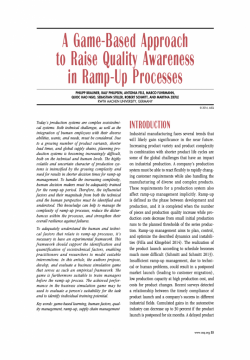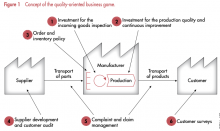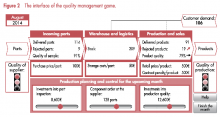
Abstract
Today’s production systems are complex socio-technical systems. Both technical challenges as well as the integration of human employees with their diverse abilities, wants and needs have to be considered. Due to a growing number of product variants, shorter lead times and global supply chains, the planning of production systems is getting increasingly difficult, both on the technical and on the human level. Its highly volatile and uncertain character is intensified by the growing complexity and results in shorter decision times for ramp-up management. In order to handle the increasing complexity, the humans decision makers must be adequately trained for the ramp-up period. Therefore, the influential factors and their magnitude from both, the technical and the human perspective must be identified and understood. This knowledge can help to manage the complexity of ramp-up processes, reduce the disturbances within the process, and strengthen their overall resilience against failures. For an adequate understanding of the human and technical factors that relate to ramp-up processes an experimental framework is necessary. This framework should support the identification and quantification of socio-technical factors, enabling practitioners and researchers to model suitable interventions. In this article we propose, develop, and evaluate a business simulation game that serves as such an empirical framework. The game is furthermore suitable to train managers before the ramp-up process and the achieved performance in the business simulation game may be used to evaluate a person’s suitability for the task and to identify individual training potential.
1. Brauner, P., Philipsen, R., Fels, A., Fuhrmann, M., Ngo, H., Stiller, S., Schmitt, R., Ziefle, M.: A Game-Based Approach to Meet the Challenges of Decision Processes in Ramp-Up Management. Quality Management. Journal 23, 55–69 (2016).
Related Project(s):

